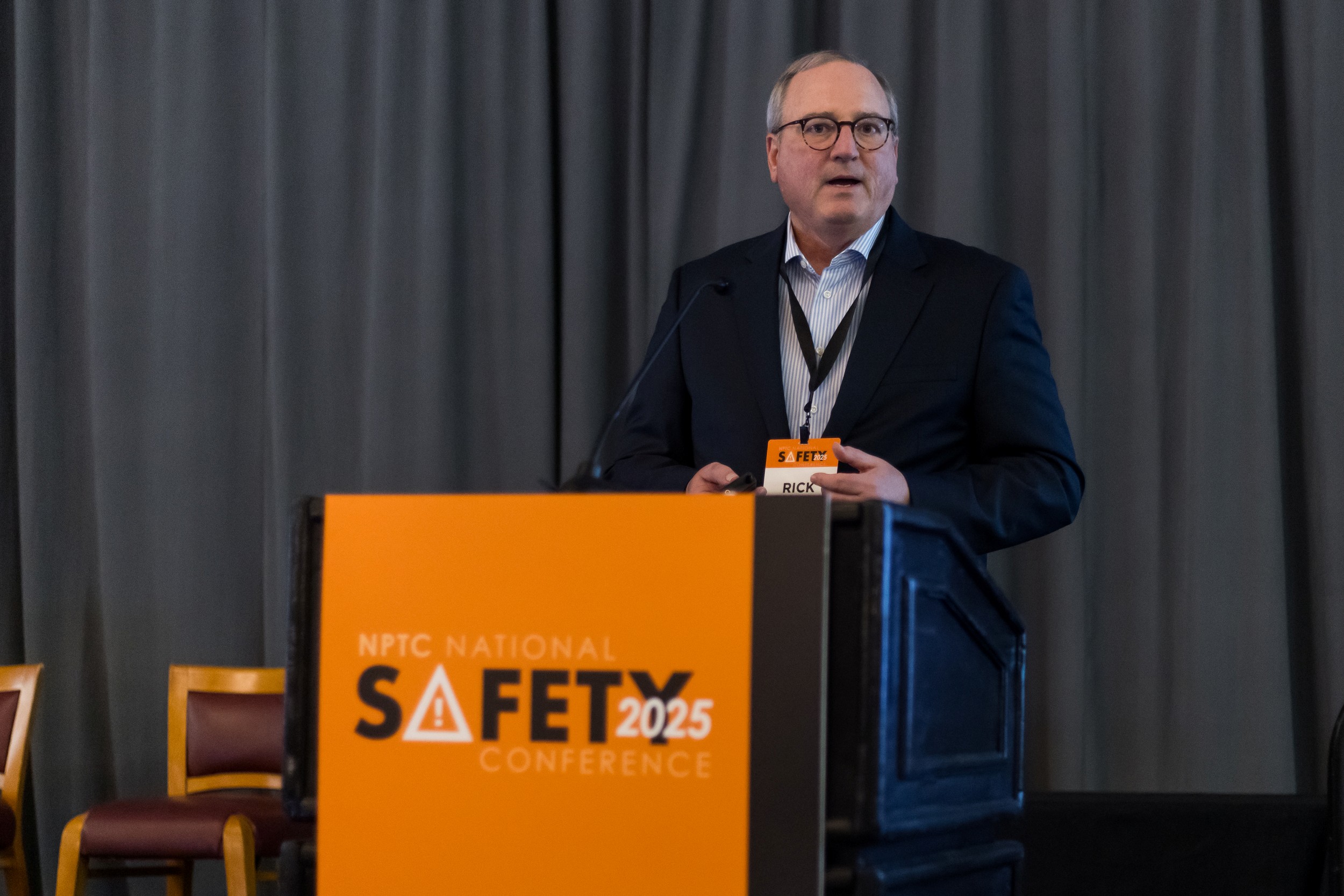October 2025
Why You Can’t Outsource Liability
Each month NPTC President and CEO Gary Petty writes a column in Fleet Owner magazine that focuses on the individuals, companies, best practices, and resources that make private trucking the force that it is in the American economy. Reaching more than 100,000 subscribers, three-quarters of whom are private fleet professionals, this column provides an excellent forum to communicate the value of the private fleet. Click here to view the archive.

Gary Petty | gpetty@nptc.org | Private Fleet Editor for FleetOwner Magazine
Gary Petty has more than 30 years of experience as CEO of national trade associations in the trucking industry. He has been the president and CEO of the National Private Truck Council since 2001.

Outsourcing jobs, or even your entire fleet operation, does not eliminate risk
At the NPTC National Safety Conference in early September, Rick Schweitzer, NPTC’s general counsel, conducted a tutorial session on private fleet liability and outsourcing. Below are key points from his presentation.
SOME PRIVATE FLEET managers may think that outsourcing safety-sensitive functions, such as maintenance, driver hiring, and regulatory compliance, or even some or all of their transportation functions to a for-hire carrier or carriers, will relieve their company of liability in the event of a truck crash. That’s not true.
Having adequate insurance is critical, but it is not sufficient on its own and does not replace the need for vigilance in managing the vendor relationship.
If your private fleet outsources functions such as vehicle maintenance, driver training, accident management, driver qualification files, drug and alcohol testing compliance, or driver hiring, your company remains responsible for complying with all the requirements outlined in the Federal Motor Carrier Safety Regulations (FMCSRs). So, for example, if your vendor’s driver qualification (DQ) files are not in compliance with 49 CFR Part 391, or your personnel company provides you with drivers who are not qualified to operate a commercial motor vehicle, your company violates the FMCSRs.
The Federal Motor Carrier Safety Administration does not consider using a third-party vendor an excuse for non-compliance. Your company is the motor carrier and will be subject to the violation and civil penalty.
If your maintenance provider fails to secure a wheel properly and it leads to a crash, your company will be sued and held liable for the injury. Again, you can sue the maintenance provider under your contract, but that does not prevent your company from being taken to court.
Likewise, if you use a third-party logistics provider or a for-hire motor carrier to haul your company’s freight, plaintiff’s lawyers and courts have established new theories of liability that hold the shipper accountable for the negligent or reckless acts of the for-hire carrier (and its driver) that led to an injury or property damage.
If you did not properly vet the for-hire carrier before offering a shipment, and the carrier driver causes a crash, you, as the shipper, could be directly liable under a theory of negligent hiring or negligent entrustment.
Further, if you did properly vet the carrier at the outset, but the carrier’s safety performance deteriorated over several months or years, as measured by their SMS scores, you could be held liable under a theory of negligent retention of the carrier. In either case, the shipper would be directly responsible to the injured party for damages.
So, how do you protect your company? You must manage these outsourced functions as if the vendors were in-house. This means periodically conducting performance reviews under the terms of your agreement, establishing objective and measurable performance metrics, and, most importantly, taking action when the vendor fails to meet its obligations.
There is a world of difference between strategic oversight and blind trust. Your company needs to maintain oversight of audits, incidents, and performance. And it must ensure that whoever conducts the vendor audits is also subject to oversight and audit.
Moreover, you cannot simply rely on the vendor’s insurance coverage to protect you, even if you have an ironclad indemnification provision in your agreement. Insurance is only as beneficial as the assets backing it up. For instance, a for-hire motor carrier is only required by law to have $750,000 in liability insurance. A maintenance provider or other vendor may not have extensive coverage. A major—or even a relatively minor—accident could quickly consume that amount.
Having adequate insurance is critical, but it is not sufficient on its own and does not replace the need for vigilance in managing the vendor relationship. From the outset, ensure that the vendor’s culture and objectives align with your own.
Finally, you need a clear plan of action if a vendor fails to meet your standards. You do not want to find yourself in a deposition with a plaintiff’s attorney having to explain away your lack of review and response that led to an accident.

Rick Schweitzer, NPTC general counsel |
Photo: NPTC
